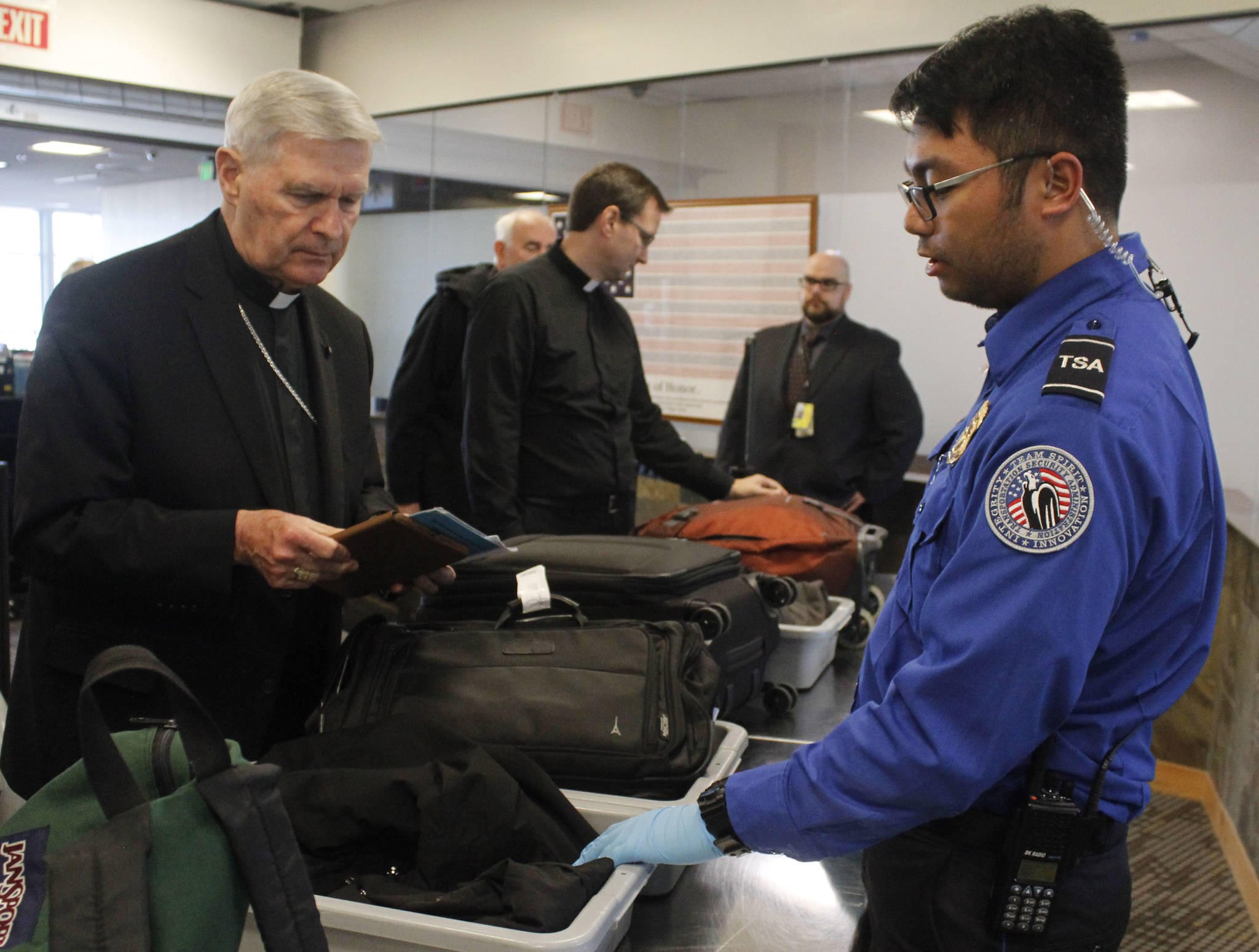Transportation Safety Officer Renier Cava is likely used to repeating instructions over and over as passengers pass through security at the Juneau International Airport, and he now has a new set of instructions to add to the mix.
“Alright folks,” Cava told a line of passengers just before noon on Wednesday, “we’re starting a few new things here. Any electronics larger than your cellphone need to come out.”
The Juneau International Airport is the first airport in the state to start enforcing a new policy from the Transportation Security Administration (TSA), where all electronics larger than a cellphone have to be removed from bags and placed in bins during the screening process. This includes items such as tablets, electronic reading devices, portable speakers, cameras larger than basic point-and-shoot cameras and gaming consoles.
Policies relating to laptops remain the same, where a laptop must be in a bin all on its own. With these other electronics, they can share a bin, but need to have enough room where there’s nothing on top or below of them. For instance, someone’s tablet and e-reader could share a bin but can’t be piled on top of one another.
Lorie Dankers of TSA Public Affairs said that this allows TSA officers to get a clearer X-ray image of electronic devices than if they were in someone’s luggage. These procedures were tested at 10 airports across the country in the past few months and are in the process of being installed across the nation.
Dankers said every airport in the country will be implementing these changes by the end of the year, and the airports in Southeast Alaska are part of the first wave. In the next few weeks, this policy will go into effect at Cordova Municipal Airport, Ketchikan International Airport, Sitka Rocky Gutierrez Airport, Wrangell Airport and Yakutat Airport.
With more bins now thrown into the mix, combined with the fact that passengers will have to dig through their bags to find their assorted devices, small delays are likely in the initial weeks of this policy. If passengers leave a device in their luggage as they put it through security, this will result in an extra bag check and possibly re-running the luggage through the machine.
Additionally, Dankers said more electronics are showing up at lost-and-found stations in airports with this policy due to passengers being in a rush and not being used to having to worry about remembering all of their devices. As always, TSA recommends that passengers arrive at least 90 minutes early for flights in Southeast Alaska.
The best way to speed the process up, Dankers said, is to prepare beforehand. If your electronics are in your luggage, it’s wiser to put the electronics on the very top of your bag so they’re easily accessible.
“It’s important to be prepared for that. There’s nothing worse as a traveler to stand behind people who are digging through their bag because they know they put their Kindle somewhere and they’re looking for that. The passengers play a big role in keeping the process efficient and just a little bit of preparation up front will make it better for everyone.”
There are no changes to what passengers are and aren’t allowed to bring in, and the new security measures do not apply to those who are enrolled in TSA PreCheck who are using dedicated TSA PreCheck lanes.
TSA continually adjusts and reevaluates its policies because threats are ever-evolving, Dankers said. Terrorist groups continue to target airlines, Dankers said, and TSA tries to stay one step ahead of the curve.
“We know that they are aggressively pursuing innovative methods to disrupt the aviation system by finding ways to smuggle explosive devices in various consumer items,” Dankers said, “with a focus on electronics.”
• Contact reporter Alex McCarthy at 523-2271 or alex.mccarthy@juneauempire.com.

